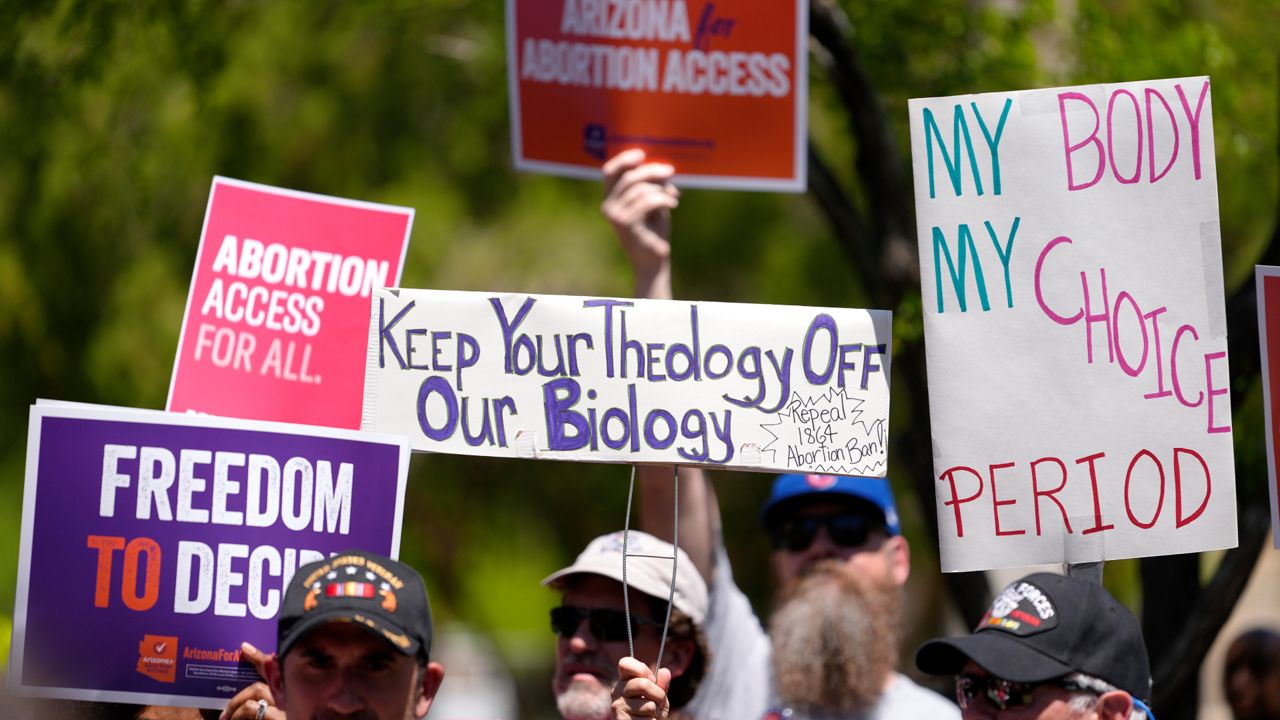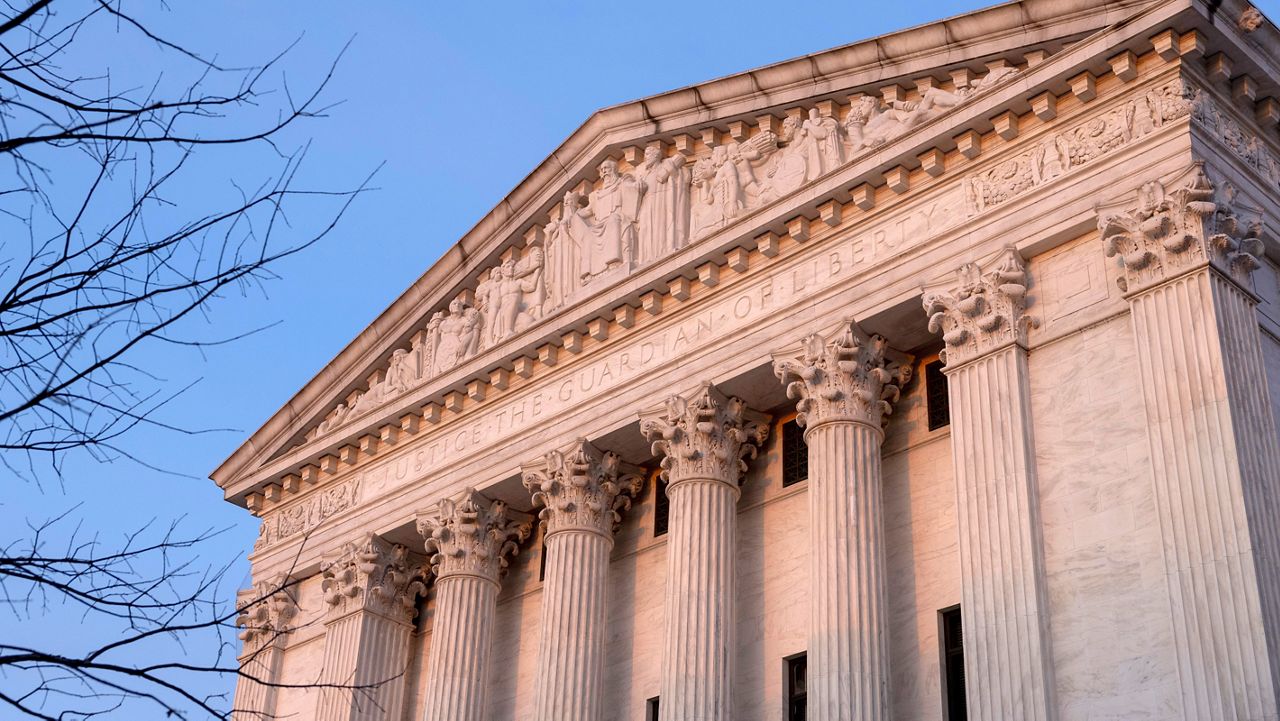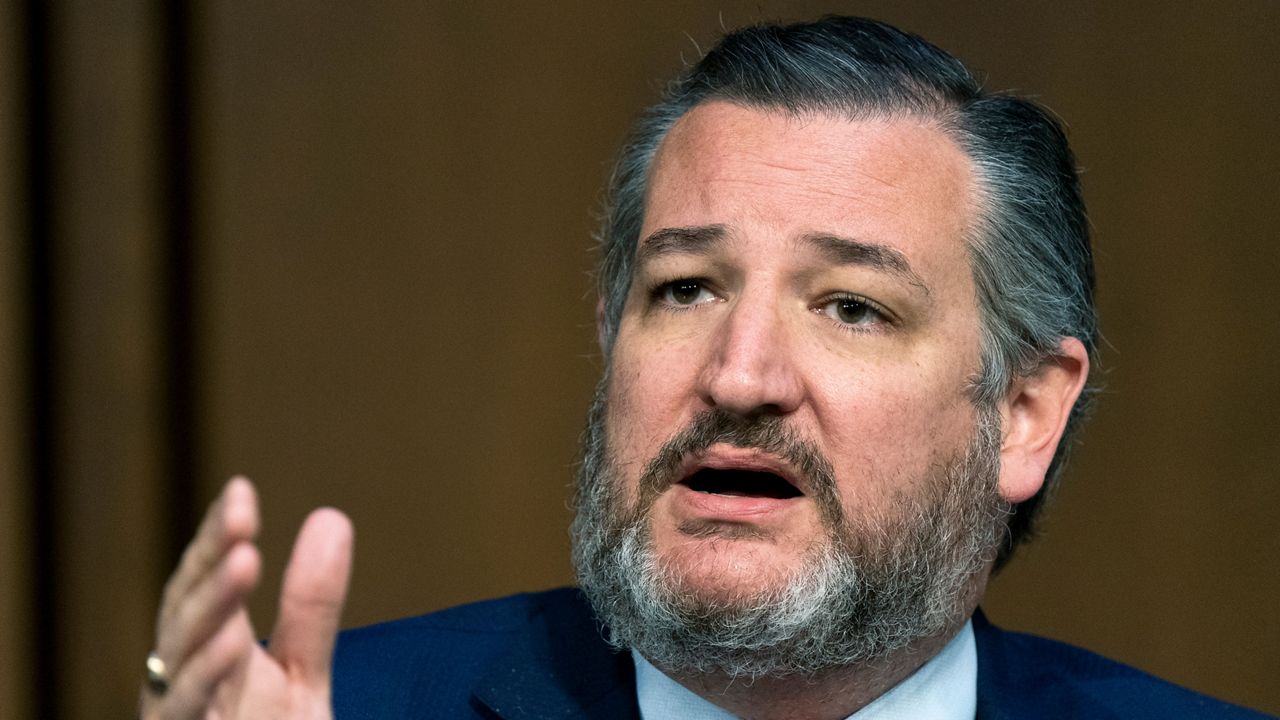With a bipartisan vote of 352-65, the House voted Wednesday to approve a bill that could ban TikTok in the U.S., and members of Congress are looking at putting an end to the practice of no-knock warrants.
House passes bill that could ban TikTok in the U.S.
The House of Representatives on Wednesday passed a bill that would ban TikTok from U.S. app stores unless Chinese company ByteDance divests itself from the popular social media company within six months.
The move follows months of threats and speculation in Washington about the possibility of such an ultimatum as concerns from lawmakers over data privacy and national security surrounding the app escalate.
The final vote of 352-65 signaled broad bipartisan support for the effort in the lower chamber. But the bill, which still needs to pass the Senate and get President Joe Biden's signature to become law, faces an uncertain path in the upper chamber.
“The possibility of CCP interference and control of the algorithm is what we are trying to address with this bill,” Chairman of the select committee investigating the Chinese Communist Party Rep. Mike Gallagher, R-Wis., who is the lead author of the bill, told reporters following the vote.
Gallagher also pushed back on the idea that Wednesday’s vote was an “outright ban,” arguing the bill first attempts a divestiture of ByteDance from TikTok.
“I have no problem with continued dance videos or even political campaigning on TikTok, so long as the ownership structure changes,” he said.
Lawmakers have repeatedly expressed uneasiness about the potential for the Chinese government to access the data of TikTok users, including the 170 million in the U.S.
U.S. leaders have warned about a 2017 Chinese law that compels companies to work with the government and turn over data that is relevant to national security.
TikTok has pushed back on such an assertion, including the app's CEO Shou Zi Chew, who insisted during a House hearing nearly a year ago that ByteDance is not owned or controlled by the Chinese government.
Fifteen Republicans and 50 Democrats opposed the legislation on Wednesday, with one member voting present.
The bill appears likely to face a rockier path in the Senate, where leaders have given little away about how it will fare in the upper chamber.
"The Senate will review the legislation when it comes over from the House,” Senate Majority Leader Chuck Schumer, D-N.Y. said in a statement following the bill’s passage in the lower chamber.
Senate Intelligence Committee Chairman Mark Warner, D-Va., and Vice Chairman Marco Rubio, R-Fla., hailed the bill's passage, saying in a statement: "We were encouraged by today’s strong bipartisan vote in the House of Representatives, and look forward to working together to get this bill passed through the Senate and signed into law."
“I’m not sure that this is the answer but if the House passes a bill (I) look forward to joining that debate and discussion,” Sen. John Cornyn, R-Texas, told reporters ahead of the vote.
TikTok has been loudly critical of the effort, something that did not quiet after Wednesday's action.
“This process was secret and the bill was jammed through for one reason: it's a ban,” TikTok wrote in a post on its X account, formerly known as Twitter, following Wednesday’s vote. “We are hopeful that the Senate will consider the facts, listen to their constituents, and realize the impact on the economy, 7 million small businesses, and the 170 million Americans who use our service.
Biden told reporters on Friday that he would sign the bill, despite his reelection campaign recently joining the platform in a bid to reach younger voters.
“If they pass it, I’ll sign it,” Biden said of the TikTok legislation.
Biden already banned the social media app on federal government-owned devices with limited exceptions. It has also been banned on government devices in dozens of states.
A look at the bipartisan effort to ban no-knock warrants
On Monday morning, Tamika Palmer reflected on the four years since she lost her daughter Breonna Taylor, who was killed by police serving a no-knock search warrant at her Louisville home.
“It continues to be hard, but I still fight, and I still make sure that what happened to Breonna doesn’t happen again," she said at a news conference with state and federal leaders in Louisville. "And that’s really what’s important here."
Police said they knocked and announced themselves before breaking down the door during the 2020 raid at Taylor’s home. But her boyfriend, who fired a shot that struck an officer, said he didn’t know who they were or why they were there.
Police fired back, killing Taylor.
Rep. Morgan McGarvey, D-Louisville, and Sen. Rand Paul, R-Ky., are teaming up to try to pass the Justice for Breonna Taylor Act, which would ban no-knock warrants on the federal level.
The legislation says federal officers executing a warrant, as well as state and local agencies that receive funds from the Department of Justice, must first announce who they are and why they’re there.
Paul first filed the bill in 2020, but it did not have a Democratic co-sponsor and did not move forward.
“I’m very hopeful that this will move forward,” Paul said Monday. “I’m sorry that it took the death of Breonna to get everybody unified, but people say, ‘Why is there no bipartisanship?’ Well, we had a terrible tragedy, and now there is.”
Since the night of the deadly raid, the city of Louisville banned no-knock warrants, and the Kentucky Legislature passed a law saying the warrants can only be used under certain conditions.
“We’re saying we are tying this law enforcement money to banning no-knock warrants,” McGarvey said. “We think it will be very effective in truly minimizing the practice except for the most exigent and egregious circumstances where it can be justified.”
Democrats control the Senate and Republicans control the House, and Paul and McGarvey said they’re working to move the legislation forward with bipartisan support in both chambers.
Sen. Cory Booker, D-N.J., is co-sponsoring the bill, Paul said. McGarvey added he knows of some Republican members who are interested, including from Kentucky.
Students in Tampa work to get others interested in voting
Universities have always been a bastion of different viewpoints for discussion or debate, where young minds learn more about the world and the political process.
But one study shows young voters are increasingly becoming disillusioned with the political process, and aren’t too thrilled about a possible rematch between President Joe Biden and former President Donald Trump.
This upcoming presidential election features very different candidates with very different visions for the future.
Those visions translate to discussions about the issues on college campuses.
At the University of South Florida in Tampa, two senior economics majors expressed a disappointment in the current political environment.
On the right was Ethan Vaubel, while on the left was Tyler Tone.
The two are actually friends, but when it comes to politics, they see the world differently, and that comes out when they debate each other.
“Everyone was expecting fireworks — they were expecting yelling and screaming and fighting," Tone said. "And it ended up that most people got along and were able to to some kind of understanding that the people they were talking to were human beings. They are not evil.”
They differ on a lot of issues like gun rights, abortion and the role of government.
But one thing they do agree on is dealing with disillusionment among young voters, and trying to get them fired up and involved in the political process.
“We really try to educate young voters. We try to introduce them to their candidates — people who are actually on the ballot," Vaubel said. "By meeting someone on the ballot, you can really gain an understanding of what they’re going to support in Washington, in Tallahassee and your local community.”
A recent poll conducted by the Institute of Politics at the Harvard Kennedy School found waning enthusiasm among young voters for what is expected to be a rematch between Trump and Biden.
The number of Americans between 18 and 29 who say they’ll definitely vote in the 2024 election has dropped from 57% to 49%.
Republicans and independents showed the biggest drop, from 66% to 56%.
Tone and Vaubel said it can be tough to get young voters to the polls. Sometimes they just aren’t interested, or feel their voices aren’t heard, but that’s what they’re trying to combat. Both said they wanted to stress that all votes matter.










